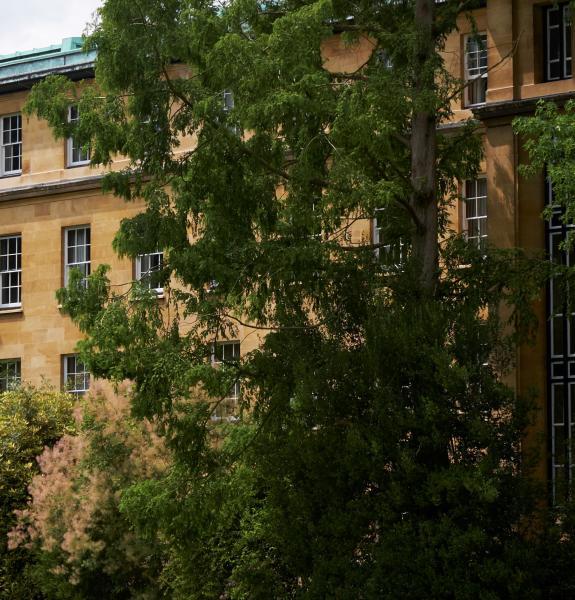As an overseas student, there is the option to use storage space in College over summer, which made returning home after the end of term a lot easier.
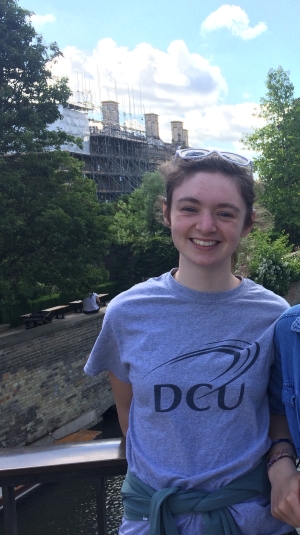 Erin is from County Down, Northern Ireland, and wrote this at the end of her first year studying Medicine here at Christ’s College, Cambridge. At school, Erin did A-Levels in Maths, Further Maths, Biology, Chemistry, and Physics.
Erin is from County Down, Northern Ireland, and wrote this at the end of her first year studying Medicine here at Christ’s College, Cambridge. At school, Erin did A-Levels in Maths, Further Maths, Biology, Chemistry, and Physics.
Why did you apply for Medicine at Cambridge specifically?
Having attended a Northern Irish summer scheme in Corpus Christi at the end of year 12 (called year 13 in the Northern Irish system), I decided to apply to Cambridge to study medicine. I liked the idea of having preclinical years followed by clinical years, as I enjoy learning academically and wanted to continue that after secondary school. In third year, there is the option to study a subject of particular interest, which really appealed to me. Furthermore, as a visual learner, the use of cadavers as part of the learning in first year was also something which drew me to the course at Cambridge.
Medicine courses can vary a lot between different universities, and it is difficult to choose one without experiencing the different styles of teaching. From my school experience, I felt as though I would enjoy the course more if the academic and clinical aspects were separated, so I thought a traditional style of teaching would suit me. However, the more integrated medicine courses do have their benefits!
Why did you apply to Christ's?
I choose Christ’s mostly based on the prospective applicant information online (although it did help that it was the first college on the list!). Generally, there seemed few differences between the Colleges, so choosing one which looked nice and was a size that suited me were my main criteria. In hindsight, I’m glad I chose Christ’s; its location is central, meaning it’s very close to where the lectures are held.
Christ’s provided a book grant for freshers in my first year, although the library also holds a large variety of books, which can be taken out over the vacation periods too. Also, as a student from outside Great Britain, there is the option to use storage space in College over summer, which I really appreciated as it made returning home after the end of term a lot easier.
College has also provided me with financial support for travelling this summer to China as part of a summer programme to learn Mandarin. Before applying to Cambridge, I was unaware of the Cambridge Bursary, which is a grant of up to £3,500 given depending on your parents’ income. As someone from a lower-income household, this grant was really appreciated, and gave me peace of mind financially. The details of financial support do change from year to year but in my year there was also a ‘top-up bursary’ available to first year students eligible for the Cambridge bursary in the second term.
'typewriter building'.
What do you think of the collegiate system in general?
I quite like the collegiate system. When starting university, the prospect of being among thousands of new people can seem daunting but I feel the collegiate system provides a good transition from secondary school. However, each College has its own advantages and disadvantages in terms of cost of accommodation, facilities and financial support, so I would advise doing some research into the Colleges you like.
One negative of the collegiate system is that often you don’t have to spend time in other Colleges. I personally didn’t spend time in other Colleges during term time, except for looking at the different Colleges from a tourist perspective. However, I think this was a personal choice, as many people do go to other Colleges socially.
How did you find the application process?
I found the application process a nervous, but exciting, time. I had not seen Christ’s prior to applying, so I was looking forward to looking around. People applying for medicine have to take the BMAT, which is taken in November of the year you apply. There are plenty of past papers online which I did whenever I had the chance, and I also used a book with similar problems.
My interview at Christ's was my first university medicine interview, and I was really quite clueless as to what this would entail. In hindsight I feel as though I should have been more prepared for interviews (see below!), so that I would have felt more confident in myself at the time and would have been less pessimistic after the interview about my likelihood of getting an offer.
In my free time I read a few relevant books (I would especially recommend ‘Do No Harm’ by Henry Marsh). My secondary school did not have a large number of people applying to Oxbridge, so my main source of preparation and advice came from online resources. I feel Cambridge does make an effort in helping people be prepared, with resources on the Christ's Medicine page, interview advice videos and I also used Staircase12 for book recommendations. Also keeping up to date with medicine-related news (which I did through BBC News) is helpful.
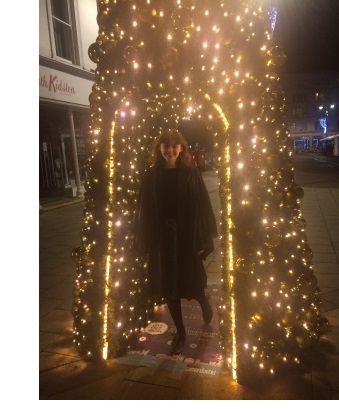 How did you prepare for your interview?
How did you prepare for your interview?
I hadn’t had much interview preparation, so I wasn’t really sure what to expect. However, I would say the interview did follow a similar format to that described in online resources (e.g. the films here). I would describe the interviews as fair, with the interviewers making it clear that the aim of the interview was not to try and trick you, but to access the way you thought about problems.
My advice would be to make sure you enjoy and are enthusiastic about your subject. The super-curricular activities Cambridge recommend are very accessible and it’s a great way at seeing whether the subject is right for you. For Medicine, these include:
- 'Inside the Ethics Committee', a BBC Radio 4 programme on medical ethics.
- HE+ Medicine resources
If you are passionate about your subject, let your application and interviews show this. Try to get in at least one practice interview, whether that be by a teacher, or parent, as being able to talk about concepts without second-guessing yourself is really beneficial for the interviews.
"If you are passionate about your subject, let your application and interviews show this."
Before you came to Cambridge, what were you looking forward to and what were you most worried about?
Before coming to Cambridge, I was a lot more apprehensive than excited. I was looking forward to independence which I had not had before, and to having the opportunity to live in such a pretty town. Nevertheless, like a lot of students, I worried that I wasn’t capable of studying medicine or being at Cambridge. I was worried about missing home and not enjoying or making the most out of my time here.
College allows Northern Irish students to arrive in Cambridge for Freshers' Week at the same time as international students (a little earlier than other UK students) which was really appreciated. However, was an unusual time in that the university was hosting international fresher events, and I wasn't really sure of that was applicable to NI students.
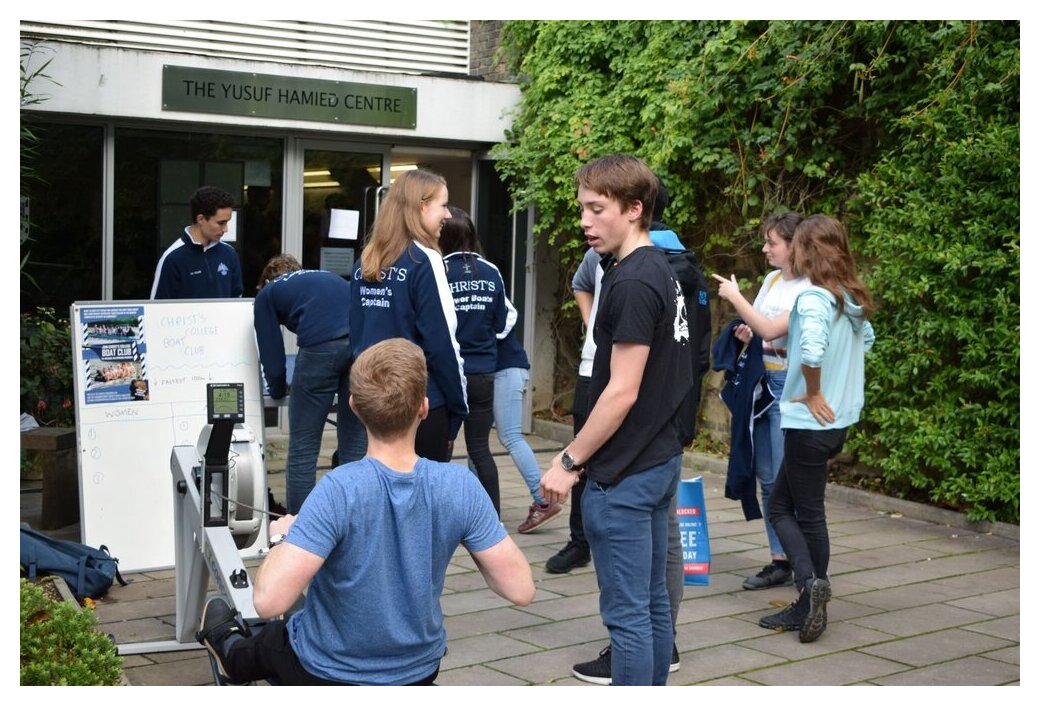
I didn’t find it easy to settle in as I got very homesick, although I think this is common for a lot of students. Moving to university was quite a big change: I live in the countryside in quite a big family, so going from this to a busy town by myself was quite a hard adjustment. I would say my homesickness has got better, and I think becoming familiar with Cambridge and getting into a routine helped with this. Having friends or family over was always great - the College has rooms which can be booked for guests, which is really helpful. I would say rowing helped too (as I do rowing back at home and the boat club has a nice community). Although I didn't go, there is also the University's Irish society which has social events during term.
I found it easier to settle into the course: Freshers’ Week allowed plenty of time to get familiar with where everything I needed was, and the older members of Christ’s Medsoc (the College’s medicine society) were really friendly, and went out of their way to ensure we were aware of the course structure and the location of lectures.
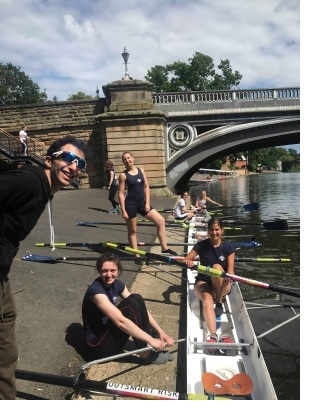
How was your Freshers’ Week?
Freshers’ Week was really busy, and there were plenty of things organised to help settle us in. There was a mix of activities, and I felt there was something for everyone to enjoy. It was an opportunity to meet others doing the same course, and also to get familiar with the College.There was a lot to take in and a lot of names to remember, but I felt the College organised it well. My advice would be to try and enjoy first year as much as possible (it was a little scary how fast it went in hindsight), and it's best to be open and friendly. I tried to get to know everyone in the year - Christ's is good in that the size of college enables you to do so. Also, there is a lot to be gained through trying new things, especially during freshers week where a lot of societies have taster sessions.
I was very apprehensive about starting lectures and supervisions, as these were teaching styles I was unfamiliar with. There were introductory lectures in the first week, which were really helpful in understanding what was going to be happening over the first term. My first supervisor was really nice, and I found the teaching style a lot better than I was expecting. Supervisions quickly became the best parts of the teaching in Cambridge, as they are an opportunity to ask questions and consolidate information from the lectures. Doing pre-reading for lectures is really helpful: lectures can feel quite long (they last 50 minutes each) and so being familiar with what is going to be discussed allows you to follow them better. Familiarising yourself with Moodle is also a good idea once you arrive (you can only access it as a current student): this is where recorded lectures and handouts are made available, and where you submit assignments.
Is the course what you expected it to be when you applied?
I think that going to university to study a subject which you have not studied before can be a little scary, and so I was very nervous about whether I would enjoy what I was learning. As with most people, I was anxious about whether I was good enough to study Medicine, as it is known for being quite a demanding subject. Also, the use of human dissection at Cambridge makes quite a few people nervous, as many people will not have been in such a situation.
In regards to the use of cadavers, it is a part of learning that people get used to. Studying Medicine took a long while to get used to, and I’m still working out how best to learn it: the subject, in my opinion, is similar to Biology A-Level, with a lot of content to learn. Prior to starting, I was unaware of how much studying the course would involve. Although at the start it can seem impossible, as the academic year goes on and you learn how best to learn the content the subject does become more manageable.
In some ways the course was what I was expecting: I had wanted to feel challenged and I feel that Medicine is a subject in which you need to learn how you learn, as it is very different to GCSEs and A-Levels. I was not prepared for the amount of content in the course: for example, I had no idea just how many muscles are in the forearm! The course was also not what I was expecting in that there are not many new concepts to learn. Rather, we expand, in a lot of detail, on topics that were perhaps mentioned in A-Levels.
How did you find the workload this year?
At the start of the first term, the workload felt insurmountable, and at times it is easy to feel out of your depth. This is partly to do with the course, but also to do with all the other ways in which university is different to living at home. Here, I have to factor in things like doing food shopping or washing clothes, things I was fortunate not to have to do when at home. However, I would say that the workload, with time, will start to feel like that of A-Levels. There is less ‘homework’ at university, but the different style of work (we complete on average 2-3 essays per week) takes some time to get used to.
There were definitely times I struggled with the course, in that there was too much to learn, or that I wasn’t enjoying what I was learning as much I as I had hoped. However, I think it is common for a lot of people to feel like this. Often if there was something I struggled with, I would leave it for a while and come back to it, and this usually helped a bit. Supervisions are a great opportunity to ask questions if there is something you’re unsure about, and asking other students can also be helpful. Doing some research online about the topic can provide a different way of looking at it, which can help if the concept is difficult to grasp.
Being able to manage your time is a skill which you definitely learn after going to university. Initially, I did not have a good work-life balance, and would spend an excessively long time doing work to be handed in at supervisions. As the year went on, I achieved a better work-life balance by organising my time between work and rowing, which made me a lot less stressed about work. Trying to follow the 3x8 rule (eight hours each of sleep, work and leisure) helped me to start getting a good balance.
"Supervisions are a great opportunity to ask questions if there is something you’re unsure about."
How does your teaching work?
Medicine has six subunits in first year: anatomy (FAB), biochemistry (MIMS) and physiology (HOM) are the larger units, with medical ethics and social context (SECHI), statistics and epidemiology (ISBM) and preparing for patients (PfP) being smaller units. Teaching is composed of lectures and supervisions, but there are also practicals and in first year PfP involves visiting a GP practice. At Christ’s, there are generally weekly supervisions for FAB, MIMS and HOM, each lasting about an hour, and are made up of 3 or 4 medical students from the college (there are usually 14 medical students per year at Christ’s). SECHI had small group seminars with students from other colleges, and the college had ISBM supervisions close the ISBM exam. There is usually at least one lecture per weekday.
The three main subjects in my first year were anatomy (FAB), biochemistry (MIMS) and physiology (HOM). Biochemistry was my favourite of the three, as it was most similar to chemistry, a subject I enjoyed studying in school. Within chemistry, genetics was the most interesting.
What are your favourite, and least favourite, things about Cambridge?
My favourite thing would probably be the town, as the the buildings are really beautiful! My least favourite thing would be the homesickness: depending on where you live, going home for the weekend is not a very feasible option, especially with the intense terms. Also, sometimes it is really easy to put a lot of pressure on yourself, where you can feel guilty for not working. I don’t think this is an exclusively Christ’s or Cambridge thing, but I think the College can proactively encourage the students to have a better work-life balance.
annual training trip.
What do you do when you’re not working?
Although Medicine has the reputation of being a lot of work, there is definitely plenty of time to be part of societies and have fun. During first year, I rowed with the College Boat Club. I really enjoyed this aspect of my first year: it was an opportunity to have a break from work, and also allowed me to develop a routine which allowed me to have a better work-life balance. Rowing is a big thing in Cambridge, with plenty of races, and the community aspect was something I liked. One highlight from rowing was the training trip to France in January: I had never been to France before, and despite it being very cold, it was a really enjoyable experience.
During Freshers week, there are both college- and university-wide Freshers' Fairs, which give you the opportunity to sign up to try out sessions with different societies. This is a great opportunity to try out something you’ve never done before, as there’s a really large variety of societies within the university. When not rowing I take plenty of time to relax, most by exploring the colleges or watching programmes or reading.
"Although Medicine has the reputation of being a lot of work, there is definitely plenty of time to be part of societies and have fun."
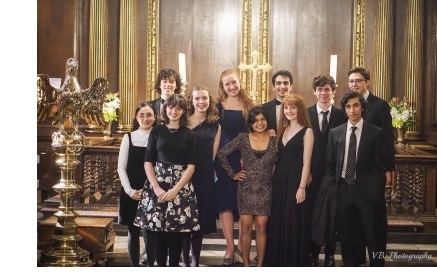 How do you spend your holidays?
How do you spend your holidays?
For the short and long vacations I go back home. I get quite homesick, so the short terms are good in that sense to back home after two months for quite a big break. During the short breaks, I tried to have an equal balance between revising from what I had learned during the term, and having a nice break after an intense term. This long vacation, my intention is to enjoy myself, but in future long vacations I hope to do some form of placement, to find out what I’m most interested in.
What are you most looking forward to next year?
I’m looking forward to learning more about Medicine: Pharmacology and Neurobiology seem very interesting, and I look forward to learning about the head and neck (parts of the body which are covered in second year rather than first year). Besides the academics, I’m looking forward to rowing again, possibly trying some university-wide societies and enjoying being at Cambridge generally.
September 2019
Please be aware if you're considering an application that our student writers describe their experiences. Although the majority of the information stays the same, some details may change from year to year. Do read the student profiles in combination with our undergraduate admissions pages for full information.
Back to Student profiles page / Medicine at Christ's / Next: George's profile


